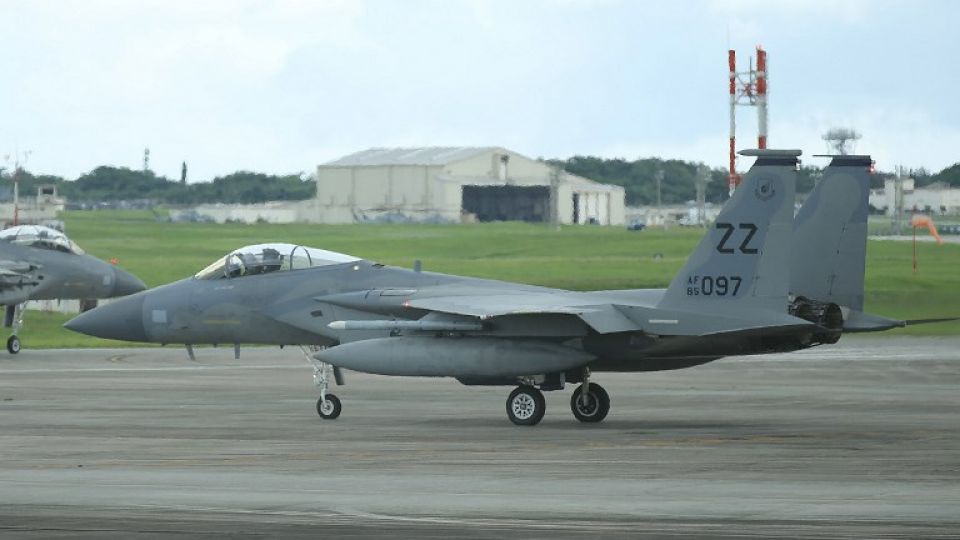June 6, 2019
The meeting of the defense chief comes after President Trump’s state visit.
Defense Minister Takeshi Iwaya and Acting U.S. Defense Secretary Patrick Shanahan have agreed to enhance Japan-U.S. cooperation in “new domains” such as space, cyberspace and electromagnetic waves.
At a meeting in the Defense Ministry in Tokyo on Tuesday, the two leaders agreed that the Self-Defense Forces and the U.S. military would strengthen their mutual operational capabilities in those fields through joint exercises and other activities, and then promote cooperation for “cross-domain” operations.
“Japan and the United States need to use their resources to create a strong deterrent force to secure a competitive edge in the new domains,” Iwaya told reporters after the meeting.
The two also agreed to promote multilateral cooperation in the Indo-Pacific region in light of China’s military buildup and maritime expansion. They also agreed that Japan and the United States, as well as Japan, the United States and South Korea, will cooperate closely to achieve the “complete, verifiable and irreversible” abolishment of all weapons of mass destruction and ballistic missiles of any range possessed by North Korea.
Regarding cooperation in the new domains, it was confirmed this year that a space monitoring sensor operated by the United States is set to be installed in Japan’s quasi-zenith satellite system to be launched in 2023, and cyber-attacks on Japan will be covered by Article 5 of the Japan-U.S. Security Treaty, which obliges the United States to defend Japan.
However, there remains concern that demands by the United States that its allies shoulder a greater burden — the policy of U.S. President Donald Trump — will be shifted to Japan.
Meanwhile, a dark shadow has fallen over negotiations between Japan’s defense ministry and landowners over a plan to relocate a site where U.S. carrier-based aircraft conduct field carrier landing practice (FCLP) from Iwoto island, which is under Tokyo’s jurisdiction, to Mageshima island in Kagoshima Prefecture.
“All we can do is solve the tasks one by one,” a senior ministry official said.


